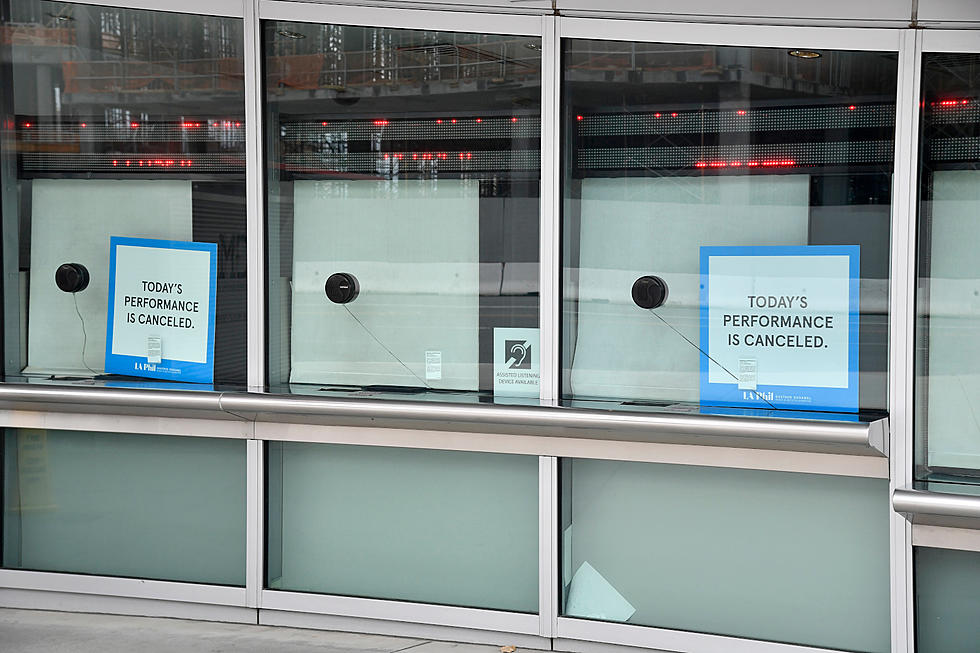
Why You Can’t Get a Refund for Concerts Postponed by COVID-19
With the live concert industry frozen by the ongoing coronavirus pandemic, ticketing companies and music fans alike are feeling the financial burden.
“In the last few weeks, 28,000-plus events have been canceled, postponed or rescheduled – 23,000 in the U.S. alone,” reads a statement from ticket-resale company StubHub posted to concert-industry website Pollstar. “Given the unprecedented impact the coronavirus has had on the live events industry, we have adapted our policies in the U.S. and Canada while continuing to go above and beyond for our customers.”
StubHub isn't the only one evolving its model during the pandemic. Ticketmaster recently changed the wording of its policy, which had previously said that fans could receive a refund if their concert was “postponed, rescheduled or canceled”; now it only lists cancellation as a reason for buyers to get their money back. It’s these “adapted” policies that have angered some fans.
“This is my money that they are holding hostage,” music fan Tami Combs explained in a conversation with the Chicago Tribune. The 58-year-old yoga instructor had been trying to recoup the money she’d paid for several 2020 concerts, but said that Ticketmaster was unresponsive. Her frustrations echo the rage of many buyers caught behind the legal fine print of ticket purchases.
When fans buy tickets to a concert or sporting event, they agree to abide by the seller’s refund policy before completing the transaction. For most, this is a small and forgettable step: Click the box that says “accept,” get the tickets and move on. While cancellations generally receive automatic refunds, postponed or rescheduled shows - a category the large majority of 2020 concerts would currently fall under - wade into a gray area that is often handled on a case-by-case basis.
“In the past, with a routine volume of event interruptions, we and our event organizers have been able to consistently offer more flexibility with refunds for postponed and rescheduled events,” Ticketmaster said in a statement. “However, considering the currently unprecedented volume of affected events, we are focused on supporting organizers as they work to determine venue availability, new dates and refund policies, while rescheduling thousands of events in what continues to be an evolving situation.”
Meanwhile, StubHub insists “it is currently impossible for us to offer immediate cash refunds to all buyers.” The ticketing giant is instead offering a coupon for fans to use toward a future purchase, valued at 120 percent of the original purchase.
Like so many major industries, those in live events are struggling to survive the financial crisis brought on by COVID-19. The industry has already seen major layoffs, and uncertainty surrounding future concerts and festivals has many feeling uneasy. StubHub itself recently furloughed two-thirds of its employees. One expert suspected that ticket brokers are likely in “severe financial difficulties,” even suggesting coronavirus could destroy the third-party ticket-resale industry.
The year had been poised for unprecedented financial gains in the concert industry. In 2020’s first quarter, gross revenue was up more than 10 percent from 2019, a year that set the previous record for global box office. Rock acts were playing a vital role in these early 2020 numbers, as tours by the Rolling Stones, Elton John, Motley Crue with Def Leppard, Eagles and the reunited Rage Against the Machine ranked among the year’s most anticipated treks. Pollstar projects that the industry could have topped $12 billion in revenue this year, had coronavirus not brought live events to a grinding halt. Now, if the worst-case scenario came to fruition and all concerts for 2020 were canceled, the industry would be looking at a roughly $9 billion loss.
These numbers, of course, are of little concern to individual concertgoers who are much more focused on their own outlays. A ticket buyer in Wisconsin has already filed a class-action lawsuit against StubHub, claiming that the company's financial constraints "are entirely of its own making" and that altering its refund policy from cash to coupons is "cruel and wrong." Meanwhile, many fans admit they are unlikely to return to live shows even once social-distancing bans are lifted.



